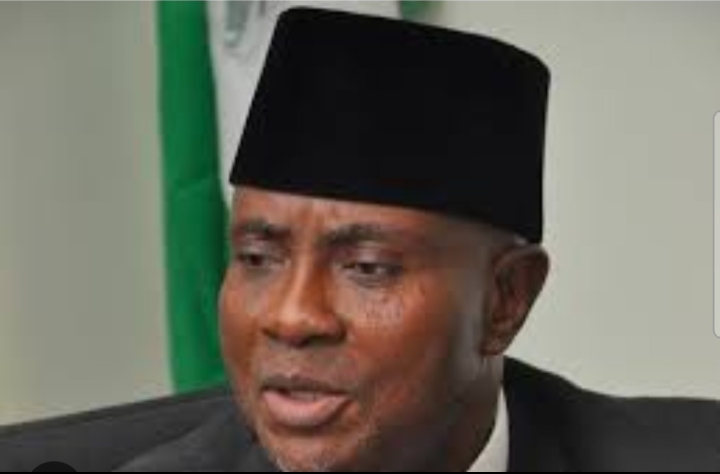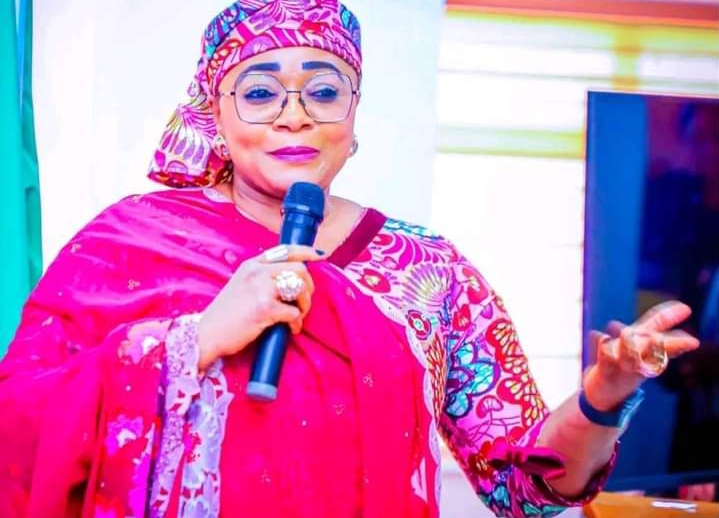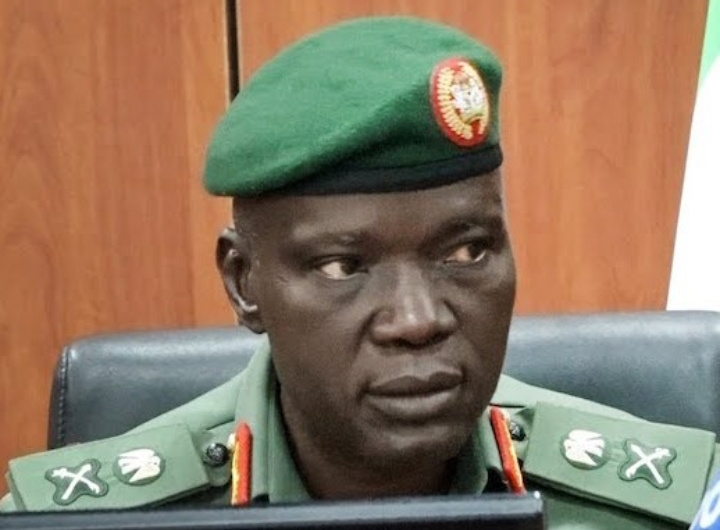Check out for Nigeria’s Chronic Debtors, Politics and other related matters.
By Abubakar Yusuf.
In the last six decades, soon after Nigeria’s independence in 1960, the country as one of the leading nation’s in the African subregion and the world had been grappling with so many problems.
These problems vary from economic, social and infrastructural deficits not based on misgovernance, but a lot of negative variables from both players and their handlers.
In either way, the government was charged with the obligations of creating an enabling environment that allowed all sectors to thrive amidst daunting challenges from all angles.
The positive development of government interventions readily brought to fore the activities of the banking sector over time in the management of our economy, social and infrastructural development of the country.
The Banking sector was placed with the burden of the ailment of resources for businesses that enabled a deregulated and thriving economy both from individuals, institutions, organised private sectors and public entities.
It became the subject of abuses both from insiders and collaborators, which led to a well-contrived arrangement for a better economy, gave way to all sorts of manipulations both from the public and private sectors involved, with dire consequences on the banking industry after some time.
The negative development reared its head when funds availed both public and private sectors for businesses were no longer returned, diverted and mismanaged as against the financial regulations or conditions precedent to drawdown, and it’s a large toll on Nigeria’s economy, investors, confidence and investments.
The ugly trend became manifest in the early 90s, when Banks in Nigeria could no longer sustain it’s operations or met their financial obligations to both legitimate and other customers, that led to the deregulated financial sector through the proliferation of Banks to go down, having failed to manage its successes.
It resulted in job losses, affected negatively the robust and thriving economy that rose as a result of the oil boom and favourable economy between the late 80s and early 90s, as Bank debtors reneged from payment of monies released to both private and public sectors of the economy.
With a robust economy, not much was felt from the unfortunate situations, as the debt profile continue to haunt the once high-performance economy till 2000, when the then CBN came up with a policy of minimum deposit and or Banks liquidation, as a result of the heavy burden of unserviceable debts and at many times uncollateralized loans by customers that affected the once-thriving economy.
Read also: AMCON: The Years of Moratorium Is Over In Nigeria For A Virile Society.
The CBN management then pegged minimum deposit from Banks operation in Nigeria to N1Billion as a deposit with the apex Bank or merge with others, and at its worst go down put of business.
The visible government policies was as a result of unserviceable bad loans from chronic Nigeria debtors cut across all facets of the economy from oil, aviation, properties, communication, among many others, that took its toll on our Banks.
In early 2000, it was becoming unbearable with obvious manifest on the country’s economy, as many Banks operating in Nigeria could not meet its basic obligations weighed down by huge debt burden, which led to a CBN policy of ‘Nationalisation’ of some of the Banks, mostly the new generation Banks as well as some old generation Banks with heavy loans burden, that had made most of its activities moribund.
The multiplier effects on the economy led to the taken over of some Banks in Nigeria, and subsequently, the convening of the Asset Management Corporation of Nigeria AMCON in 2010, that bought over or took over the bad loans in trillions from Eligible financial institutions (EFI ), and Eligible Banks Assets (EBI) in the country.
The new AMCON that came on board in 2010 through an act of the law took over 12, OOO Banks debts/ debtors exposures, that brought the banking sector and Banks from leaping and its lost glory back on track, and restored both customers, investors confidence, and the economy.
Between 2010 and 2020, it had recovered borrowed funds from Nigeria’s obligors in trillions and reduced the exposure from 12,000 to about 7,000 in 2022. these efforts are readily available in the public domain which involved a series of litigations, agreements and disagreements in line with its mandate.
AMCON had on two occasions sought an amendment to its act in 2015,2019 as the last was signed into law by President Muhammadu Buhari in 2021, which gave legal backing to all its actions with regards to borrowers and debtors exposures to AMCON via Nigeria Banks.
The determination of the corporation to recover the balance of over N4 trillion stuck with only 350 obligors including individuals, companies and their directors representing 83% of the entire exposures, with just negligible 16% fully collateralised, making AMCON crisscrossed 244 courts in pursuit of recovery of the Non-Performing Loans NPFL’s out of 350.
These recoveries cut across businesses, politicians, oil and gas, construction, properties, aviation who were hitherto not showing any positive signs of repayments.
It is on record that AMCON through the courts took over the highly-rated airline in Nigeria, Arik, Aero and others and created another airline, NG Eagle.
With over 1000 chronic Nigeria debtors cut across all areas to the tune of N4 trillion naira of taxpayers money, that will reduce to the barest minimum, the borrowings from other sectors.
This prompted the ascent to its new act through amendment, after due diligence from the National Assembly, creation of special courts by the judiciary through the Federal High Court known as ‘AMCON proceeding rules 2020’.
This will fast-tracked the legal process, leverage enforcement and granting of export orders (EO’s), to accelerate fast recovery from the recalcitrant borrowers.
The positive development had brought both the executive, legislative and judiciary on the same page of returning banks in Nigeria into good stead considering the timeline of giving to AMCON to recover all exposures by its sunset.
Having achieved this much in its enforcement, by taking over some multinationals like NICON Luxury Hotels and NICON Reinsurance Nigeria, state governments, private sectors and with renewed zeal to publish names of unrepentant debtors to come forward for a proposal of repayments, there is no doubt that AMCON will hit it’s the sunset of recovery and winding down in the shortest possible time.
The one month notice of repayments plans had elapsed between December 6th 2021 to January 5th 2022, with AMCON not going back on its plans, not minding whose ox is gored and no matter how highly placed individuals and their conglomerates that are involved in the exposures.
Coming at a good time when the 2023 elections are around the corner, it is high time the electoral umpire INEC, anti-graft agencies EFCC, ICPC collaborate to fight Nigeria’s common criminals that took loans from Banks and are lackadaisical in payments through a robust institutional framework and disposition.
The mandate of ICPC, EFCC is to fight corruption and corrupt elements in Nigeria, hence charged with recovery of ill-gotten wealth, the refusal of Banks obligors to offset their exposures to AMCON is also tantamount to criminality and corruption against the state, therefore, the agencies will assist one another greatly.
To rid Nigeria of corruption and corrupt elements, the political class charged with the running of the country, are expected to be corrupt-free, as most of the Bank exposures involved the political class at all levels.
Therefore, INEC should not only demand the assets of those aspiring for political offices from councillors to President, but their exposures to Banks and other financial institutions, to build a sane and egalitarian society that will be conducive for all Nigerians.
The growing need for partnership between the anti-corruption agencies and AMCON is here, as the inclusion as prerequisites to give a clean bill to anyone seeking political offices should start from solvency to Nigeria Banks, assets and liabilities.
Most of our political class are directly or indirectly involved in borrowings from Banks, using their names, companies and institutions as collateral, towards achieving their aims.
AMCON should remain undaunted by going ahead to publish names of its obligors no matter how highly placed for public consumption, to encourage and elicit a positive response from the affected politicians, and to also display institutional independence.
Politics is meant to grow the country, politically, economically, socially and infrastructural breakthroughs, anything sort of this, will be a disservice to Nigeria.
AMCON need not hesitate by going ahead in a few days to make public it’s an intention on the delinquent debtors to avoid over flogging the issue of recovery of Banks money in Nigeria.
For a thriving nation to be a debtor free nation, all hands must be on deck by AMCON, no matter the distraction and frustration to ensure it recovered the huge taxpayer’s resources stuck in the hands of few Nigerians and their collaborators.

For AMCON, it will be failing in its responsibility, not to go ahead to recover and remit the huge amount to the government, but only through making public the names of the affected Nigerians, their companies and Institutions.
Written By Abubakar Yusuf.











